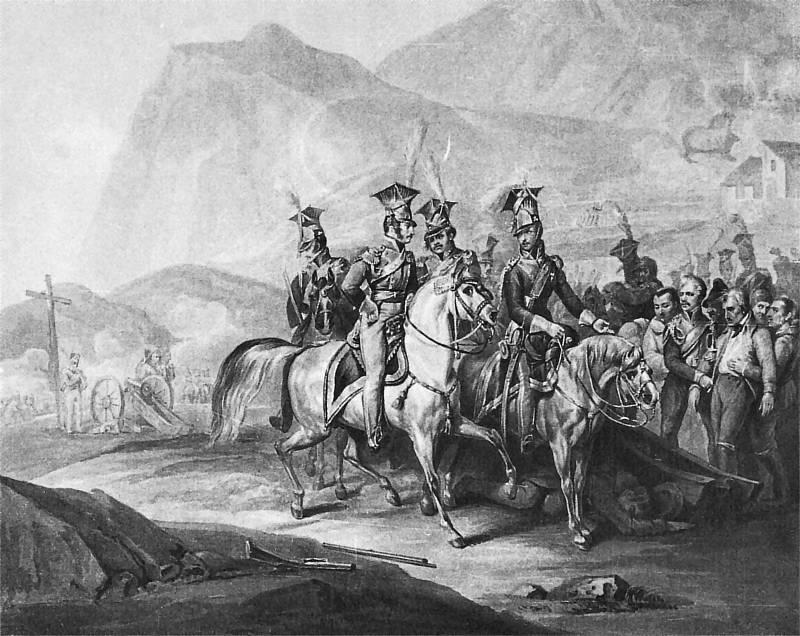Polish Legions in Italy - Polish military formations, created in Italy to fight for independence. Fought alongside the French and Italian armies between 1797 and 1807, formed on the initiative of Jan Henryk Dabrowski by the French in northern Italy.
After the Third Partition of Poland soldiers and officers emigrated to Italy and France. Thanks to Napoleon's influence, through the Agency (Polish emigration organization founded in Paris after the fall of the Kosciuszko Uprising in 1794) Jan Henryk Dabrowski signed an agreement with the new government of the Republic of Lombardy on January 9, 1797. The co-founders of the Legions were Karol Kniaziewicz, Józef Wybicki and Antoni Amilkar Kosiński.
The units were given the name of Polish Legions. The uniforms and banners were similar to the Polish ones, the language of commands and military ranks were also Polish. The inscription People who are free are brothers was in Italian. The bows attached to the uniforms were tricolored in reference to the French Revolution, symbolizing the alliance and protection of the Republic. Dabrowski guaranteed the volunteers Lombard citizenship with the right to return to Poland when Lombardy would be free and safe.
In May 1797 about 7,000 soldiers joined the ranks of the Legions, mostly Poles living in exile and Polish prisoners of war and deserters from the Austrian army of General Dogobert Wu in Mantua (6,000 Poles), previously conscripted and forced to fight against the French. Two legions of 3 battalions each were formed. Each battalion consisted of 10 companies, including (8 fusiliers, 1 grenadier, 1 rifleman - company strength: 125 soldiers). The commander of the first legion was general Józef Wielhorski, the second general Franciszek Rymkiewicz. Dabrowski introduced in the legions a modern command system based on the French model, abolished corporal punishment, gave the possibility of promotion also to soldiers who were not of noble birth, and ordered the learning of reading and writing, as well as a deeper knowledge of Polish history.
source: Wikipedia



